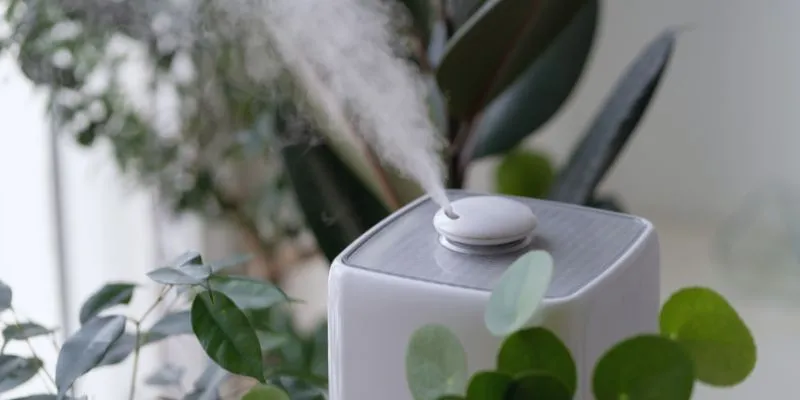Pouring from an Empty Cup? Three Ways to Refill Emotionally
Have you ever felt like you have nothing more to offer? Feeling drained is a clear sign you’re “pouring from an empty cup.” Life’s challenges can lead to emotional depletion, affecting both energy and overall well-being. It’s crucial to replenish your emotional reserves when they run low. Ignoring this need can result in burnout or even physical exhaustion. Fortunately, easy and pragmatic self-care techniques can aid in your recovery.
This article will explore three proven emotional replenishment strategies that can help you regain your vitality and live a fulfilling life. These ideas are simple, and you can start implementing them today. Prioritizing emotional wellness is key to maintaining balance and productivity. Let’s dive into these techniques to help you feel like yourself again.

Prioritize Rest and Mindful Relaxation
Why Rest Is Crucial for Emotional Health
Emotional healing relies heavily on rest, which is about mental relaxation as much as physical sleep. Under stress, our minds work harder, leading to depletion. Prioritizing rest allows both body and mind to recuperate. Start by creating a nightly ritual that encourages deep, uninterrupted sleep. Avoid screens an hour before bed, replacing them with reading or meditation. Take short breaks throughout the day to refresh your mind, such as stretching sessions or five-minute breathing exercises.
Conscious relaxation techniques, including yoga and meditation, are powerful tools to reduce mental clutter and focus on the present. Apps and guided videos can make getting started easy. Remember, rest is a necessity, not a luxury. Giving yourself permission to pause ensures the energy to meet life’s demands. Recharging emotionally begins with allowing yourself adequate time for complete recovery.

Simple Relaxation Techniques for Busy Days
Even on busy days, you can incorporate relaxation. Small adjustments can make a significant difference. Start by dedicating five minutes daily to breathing exercises. Deep, intentional breathing helps refocus and relieve tension. Progressive muscle relaxation is another quick technique: tense each muscle group for five seconds, then release, easing mental and physical stress.
During a lunch break, try a brief mindfulness exercise. Close your eyes quietly and focus on the surrounding sounds. Being present helps clear your mind. Don’t underestimate short breaks; a 20-minute nap can rejuvenate and clear your head. If napping isn’t feasible, enjoy a cup of herbal tea while listening to calming music. These simple habits are easy to integrate daily and revitalize your emotional energy. Start small and observe the transformation over time.
Connect with Supportive People
The Power of Human Connection
Mental health significantly benefits from emotional connections. Being around supportive people helps you feel valued and understood, which alleviates emotional burdens. Begin by identifying friends, family, or colleagues who enrich your life. Reach out to them and schedule regular catch-ups—whether a phone call or a coffee chat, it can lift your spirits. If you feel isolated, consider joining a class or community group. Being surrounded by like-minded individuals fosters a sense of belonging.
Never underestimate the power of active listening. Helping others in return strengthens these connections. For more profound challenges, seeking therapy can be beneficial. Therapists provide a safe space for exploration and healing. Remember, emotional resilience is fortified by human connection. Surround yourself with inspiring individuals who replenish your emotional energy.
How to Build Meaningful Relationships
Building genuine relationships takes effort but is rewarding. Start by being authentic and transparent with others. Share your thoughts and listen without judgment. Honest conversations foster strong bonds. Schedule time for regular interactions, whether through a quick message or a monthly meetup. Show appreciation for people in your life with small gestures, like compliments or thank-you notes.
Volunteering and joining clubs can also help you meet like-minded individuals. Shared experiences foster bonding and deepen relationships. When conflicts arise, approach them calmly. Open dialogue and compromise can resolve issues and strengthen understanding. No relationship is perfect, but effort makes any connection valuable. Strong relationships provide emotional support, helping you navigate life’s challenges. Invest in cultivating meaningful relationships to enhance your emotional well-being.
Engage in Creative and Physical Activities
Creativity as a Healing Tool
Creativity is an effective way to process emotions, offering an outlet for expressing complex feelings. Artistic activities like writing, drawing, and painting let pent-up emotions flow. Focus more on the process than the outcome—perfection isn’t necessary. Creativity can bring clarity and peace. Music is another excellent tool; playing an instrument or listening to soothing tunes can help you unwind. Singing along to your favorite songs also releases tension.
Journaling is particularly beneficial. Writing down your thoughts aids in understanding and organizing them. Keeping a gratitude journal helps focus on life’s positive aspects. Creative outlets promote self-discovery and emotional healing, providing a safe space to explore your feelings. Make creativity a daily habit to maintain emotional balance.
The Role of Physical Activity in Emotional Well-being
Physical activity is essential for emotional wellness. Exercise releases endorphins, boosting mood and reducing stress. Rigorous workouts aren’t necessary to reap benefits. Start with simple activities like yoga or walking, which calm your mind while engaging your body. Outdoor activities like gardening or hiking combine exercise with nature’s calming effects. Sunlight and fresh air boost serotonin, the mood-enhancing hormone.
Dancing is another enjoyable option. It offers emotional release and lifts your spirits by connecting you with music. Consistency is more important than intensity. Find activities you enjoy so they feel less like chores. Even fifteen minutes a day can make a difference. Movement helps balance body and mind, offering a simple yet powerful way to rejuvenate emotionally and restore energy.
Conclusion
Emotionally refilling is a necessity, not a luxury. By prioritizing rest, connecting with others, and engaging in physical or creative activities, you can effectively re-energize. These straightforward yet powerful techniques help you restore emotional balance and vitality. Self-care is a continuous practice that keeps you present and resilient. Stop pouring from an empty cup—take time to refill and prioritize yourself. By nurturing your emotional well-being, you cultivate a vibrant, joyful, and purposeful life.










